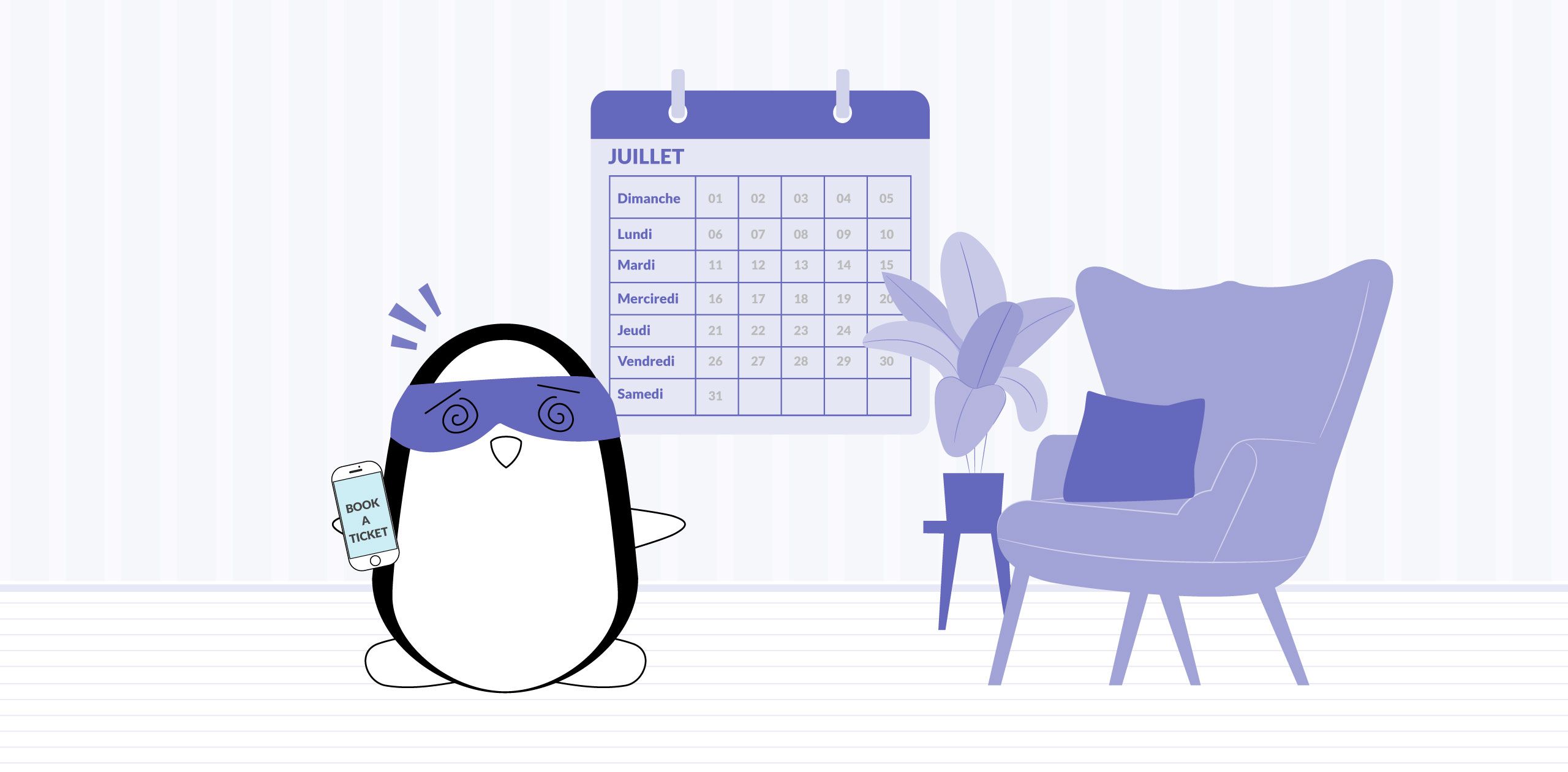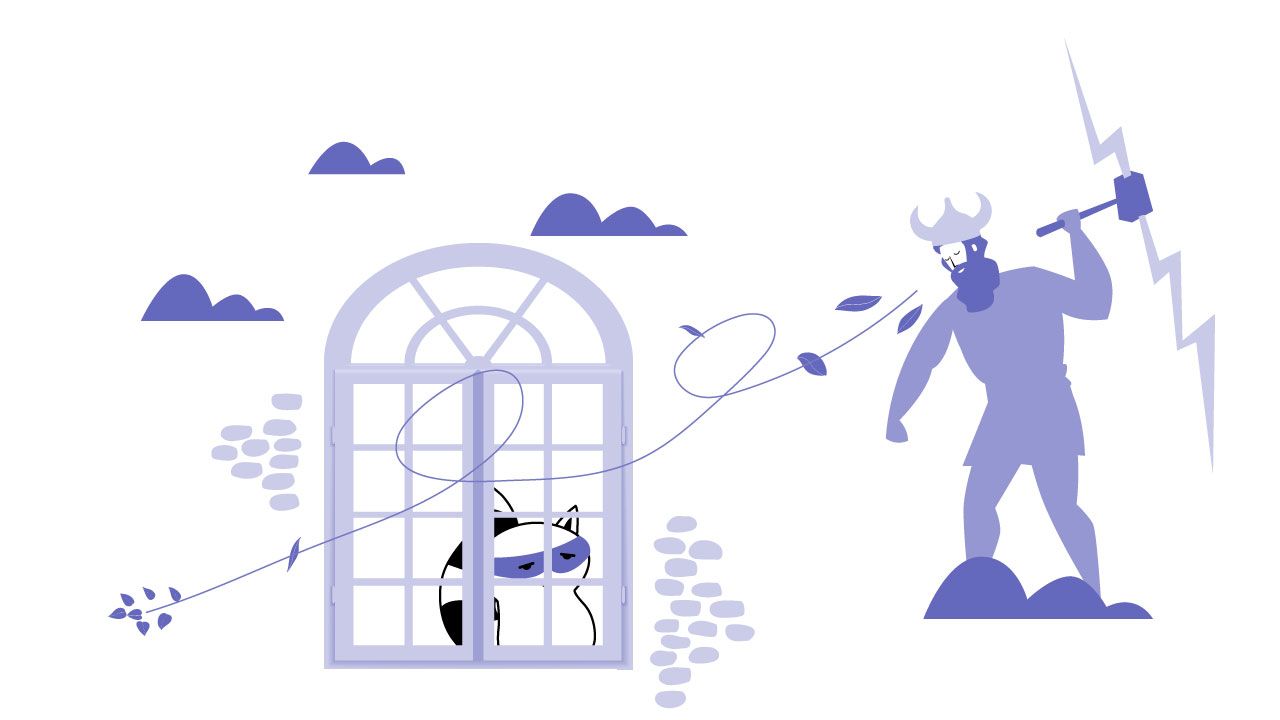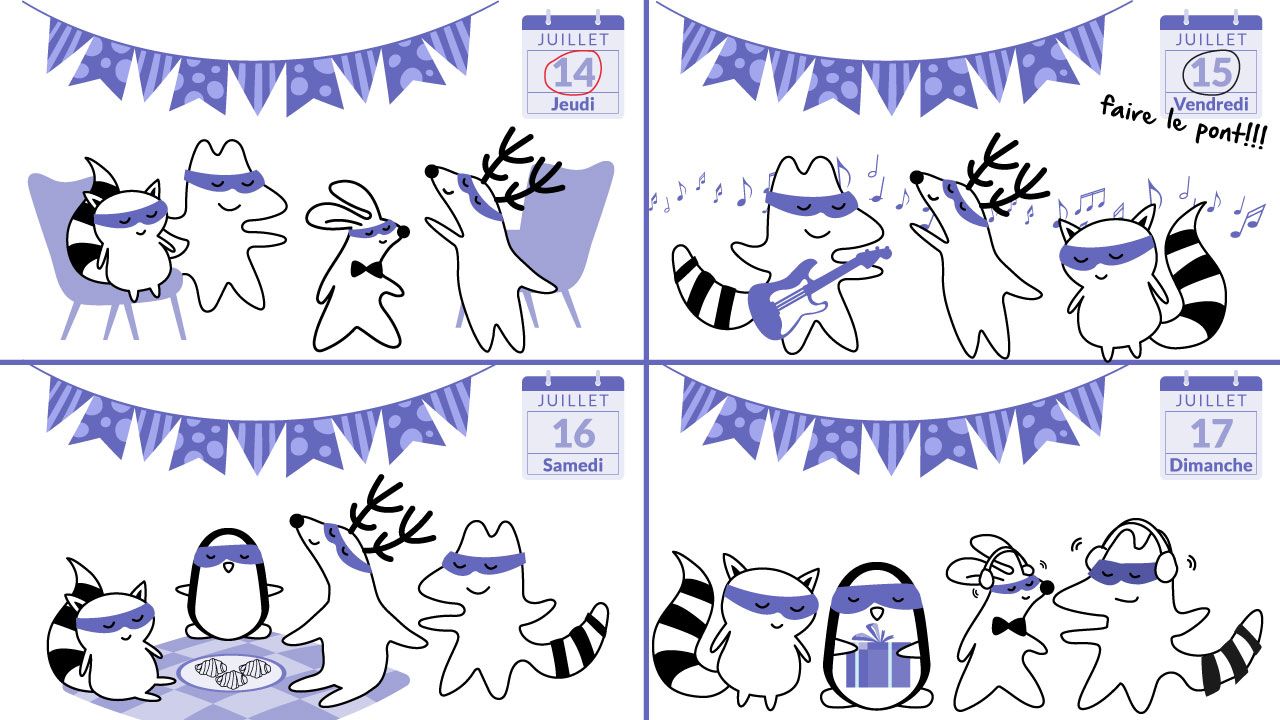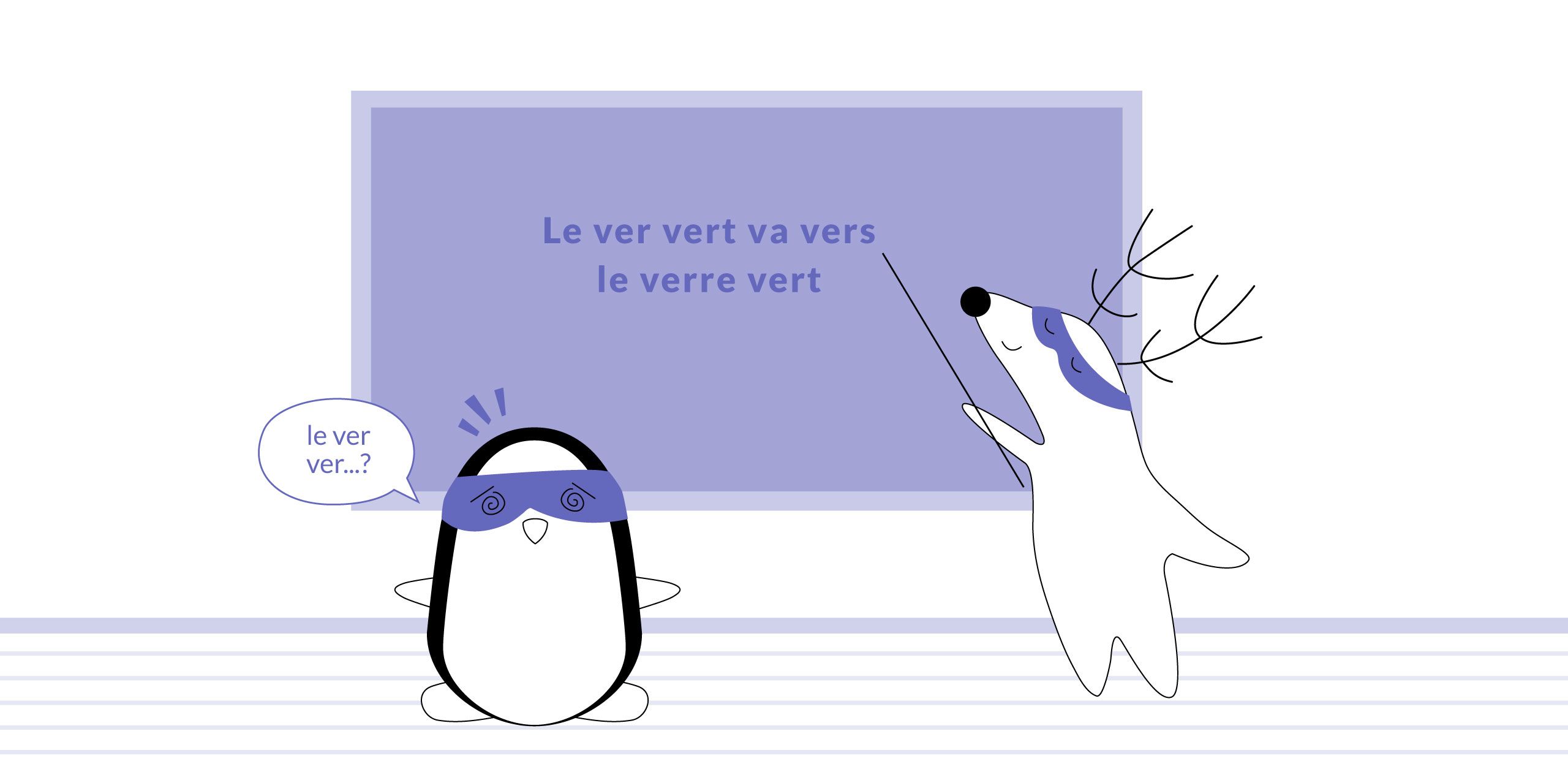
If you have checked our blog, you should already know how to greet someone in French, say goodbye, count, and even pronounce French letters of the alphabet. Now let’s move to another important chunk of the French vocabulary - days of the week.
When making an appointment in French, ordering something from the online stores, or booking plane tickets, you will need to know the words for the days of the week. We understand that learning these might be a little tricky because days of the week in French sound nothing like the days of the week in English.
Don’t worry, though - today, we are going to tell you more about each day of the week so that your learning process is super easy. Are you ready? Let’s dive into the la semaine vocabulary.
Learn French with Langster
Days of the Week - the Basics
Before we share with you the names of the French days of the week, it’s important to note that, unlike English, they are not capitalized, just like months. So if capitalization is something that makes your life harder, you’re in luck.
Another thing to remember is that French week starts on Monday rather than Sunday - so some English speakers (for example, those from the United States) might find the French calendar a little confusing.
Days of the Week in French One by One
Now, it’s time to get familiar with the seven days of the week in French. Here they are:
French
English
lundi
Monday
mardi
Tuesday
mercredi
Wednesday
jeudi
Thursday
vendredi
Friday
samedi
Saturday
dimanche
Sunday
Let us go through them one by one so you don’t just memorize the words, but also master French pronunciation and learn a little more about the history of those names.
Monday - Lundi
As you now know, the first day of the French week is Monday - lundi, pronounced as [lun-dee]. It might seem strange to you, but actually, the English and the French words have a lot in common.
Both words come from the word moon - it’s just that the English word is derived from the old English Mōnandæg, and the French word comes from the original Latin phrase lunae dies, which means “day of the moon” or “moon day.”

Tuesday - Mardi
Tuesday, like some other days of the week, is named after the Norse god - in this case, Týr. In Roman interpretation, he is the equivalent of Mars (Ares in Greek mythology). In Latin, Tuesday is called dies Martis "day of Mars" or “Mars day” - which gave name to the French version of this day of the week.
The name of this day is also similar in other languages that have Latin roots, such as Italian, Spanish, or Catalan.
If you have ever heard about the Mardi Gras celebrations like in New Orleans, you might not be surprised to hear that Mardi Gras is literally translated as “fat Tuesday.” In this case, the “fat” in the name is related to the tradition of eating rich, fatty foods before the traditional Lent fasting that begins on Ash Wednesday.
When it comes to pronunciation, there’s nothing challenging here - this is one of those French words that sounds just like it’s written: [mar-dee].
Wednesday - Mercredi
Wednesday - or mercredi - does sound a little more complicated than the other days of the week in French. But don’t worry - there’s actually a similarity here, too.
The etymology is similar to the one regarding Tuesday. In many languages, including English, this day of the week was named after Odin - who, during the Roman era, was interpreted as "Germanic Mercury.”
Because of that, in Latin Wednesday was named dies Mercurii - "day of Mercury" - and that name has been preserved in many Roman languages today, including French.
When it comes to the pronunciation, don’t worry - the word might be a little long, but it’s still simple. Just remember that e in French sounds like e in “her” when placed at the end of the syllable - so you will pronounce it like [mer-creu-dee].
Thursday - Jeudi
Thursday has a similar connotation. In English and in other Germanic languages, the name of this day has been derived from another Norse god - Thor. Roman god Jupiter was the god of sky and thunder - so in Latin, Thursday was called Iovis dies, "Jupiter's Day.”

The French name for this day of the week comes from the Latin Jovis (or Iovis) - and it is thus jeudi. Just remember not to pronounce that as the name “Jodie” - remember that English and French j is not pronounced the same way. Instead, you will say [zheu-dee].
Friday - Vendredi
With Friday, the situation is the same. The Germanic name of this day was derived from the name of the Norse goddess Frigg associated with marriage, prophecy, clairvoyance, and motherhood. As you might have guessed, the Roman version comes from the name of Venus, and the Latin root is dies Veneris or "day of Venus."

What to remember when pronouncing this word? Certainly, the nasal sound en - which will be pronounced like “ahn” - and the e at the end of the syllable. Vendredi should then sound like [vahn-dreu-dee].
Saturday - Samedi
Now, this word also has religious roots - however, not Nordic-based anymore. It’s actually derived from the Latin diēs Sabbati, “sabbath day” or "day of the Sabbath," and is related to the Hebrew word שבת, Shabbat - or the day of rest.
Note that here, the e sound disappears when pronounced - so you will say [sam-dee].
Sunday - Dimanche
Finally, the last day of the week, dimanche, is another exception.
In the English language, the name of this day of the week comes from the name of the Sun. This is derived from Hellenistic astrology, where days of the week were named after the planets - you can see the connotation above with Jupiter, Venus, Mars, etc. In Roman culture, the Sun was the source of life, giving warmth and illumination to mankind.
On the other hand, in several Roman languages, including French, the name is derived from the Latin Dies Dominica - or “Lord’s Day” - which comes from Chirstianity instead of Roman or Norse mythology.
Remember About the Articles
In English, we don’t use articles with the days of the week. However, in the French language, we do. Use the definite article “le” with the names of the French days. You can also make the days plural by adding -s: for example, les lundis.
Of course, learning French can be complicated sometimes - so there is one exception here. You won’t use the article with the days of the week when talking about a unique event that happens on a certain day. For example, Nous nous rencontrerons mardi (We’ll meet on Tuesday).
Other Useful French Words on the Topic
Now that you know the basics about the French days of the week, let’s get familiar with some other important phrases:
French
English
Le jour
a day
La semaine
a week
Hebdomadaire
weekly
Les jours de la semaine
the days of the week
Le week-end
the weekend
Hier
yesterday
Demain
tomorrow
Avant-hier
the day before yesterday
Après-demain
the day after tomorrow
Dans trois jours
in three days time
Il y a quatre jours
four days ago
Le lendemain
the next/following day
La veille
the previous day
Faire le pont
lit. “to make a bridge”
When it comes to the last phrase, faire le pont, it refers to public holidays that fall on Tuesdays or Thursdays. French people use it to talk about the tradition to transform these holidays into four-day weekends by making Monday or Friday a day off.
This way, you “create a bridge” through the gap between the weekend and the holiday - and let everyone relax.

Final Thoughts
You have improved your knowledge of the French language once again. Now, if you go to France, you can talk to the native speakers and understand them better when it comes to the days of the week vocabulary.
Of course, this isn’t all the vocabulary you need. If you want to expand your knowledge of the French language, work on your grammar, and learn more about sentence structure and pronunciation, feel free to continue reading our blog.
And if you want to practice more and learn French in a fun way, make sure to check our app. There, you will be able to read interesting stories in French, listen to them, learn the translation and grammar, and do quizzes to reinforce what you’ve just learned.
Not sure about that? The app is completely free - and if you combine it with our Grammar page and blog articles, we are sure that you will learn a lot. So why not give it a try?









